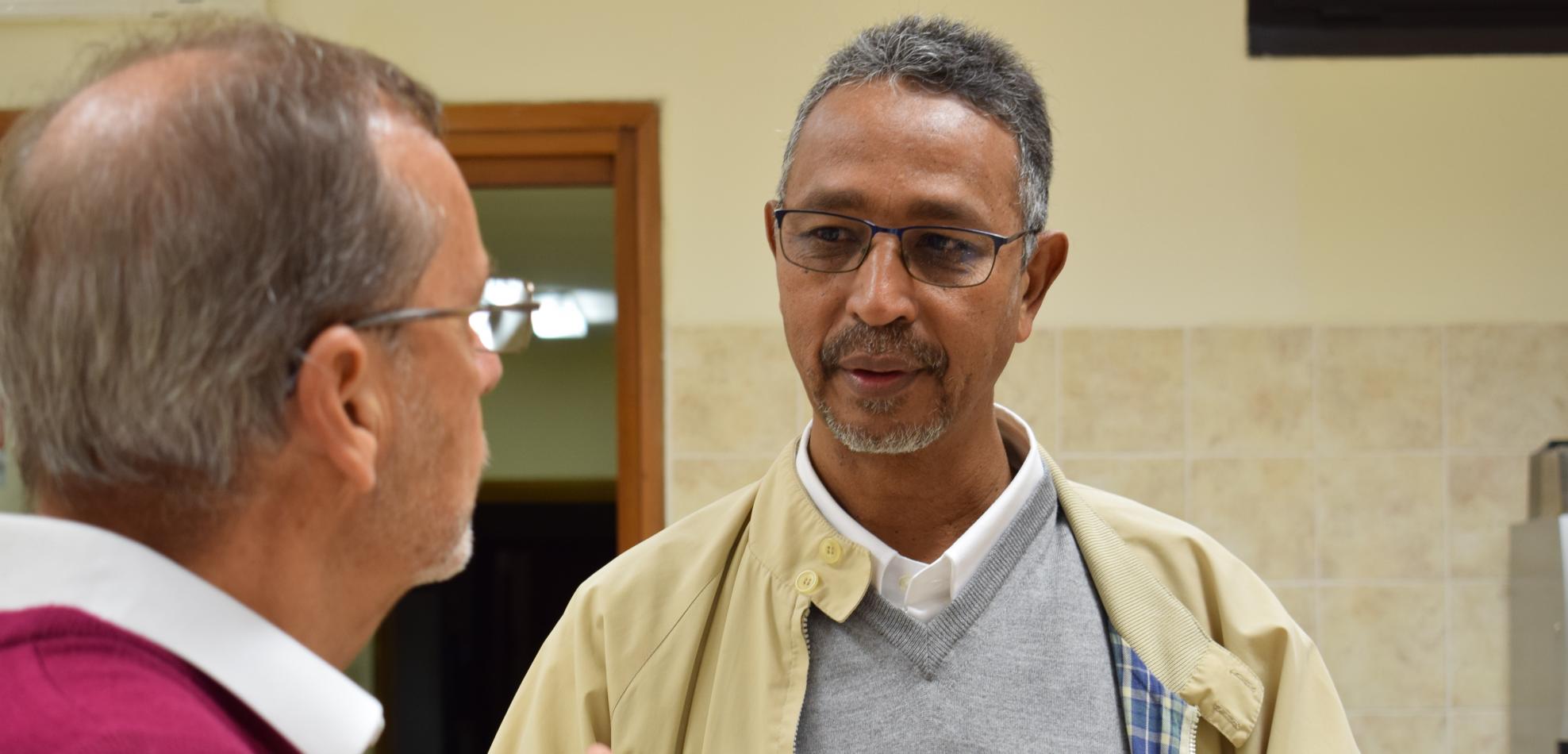Daniel Comboni
Comboni Missionaries
Institutional area
Other links
Newsletter
Monday, December 3, 2018
The scholasticate of Asmara was opened in 2008, due to the restriction imposed by the government of Eritrea on young people to leave the country. The scholasticate was temporally closed in 2016 for over 2 years, due to lack of candidates, and was reopened on 22 of September, 2018, with 3 scholastics and two formators. On 22 of November, 2018, the Delegate Superior, Fr. Habtu Teklay (in the picture), in the presence of the delegation council, confreres of the Asmara community, the Postulants and Franciscan missionary sisters, celebrated a thanksgiving Mass for the re-opening of the scholasticate.
On this occasion Fr. Habtu encouraged the scholastics to deepen their prayer life, to work hard in their studies, to create a good atmosphere in community life and to be dedicated to their pastoral services.
The scholasticate is situated at the periphery of the city of Asmara, 4-5 Km. away from the Delegation House, close to the Sembel parish of Kidanemehret, where the scholastics and the fathers offer their apostolate and ministry. In the vicinity of our residence there is Sembel prison.
There are three groups of people living in our Sembel parish. There are those who live in very nice apartments, others who live in rented houses and accommodate themselves somehow, others who are poor and try to make ends meet and find accommodation in very poor housings. The place where we reside has been chosen in order to allow the members to live very close to the people and thus share in their everyday lives. Although the apartment in which we reside is decent and isolated, yet there is a possibility for us to lead a simple life and meet the poor in their homes.
From the 9th of July 2018 the long awaited peace for the Country has come and normal relations were established between Eritrea and Ethiopia. Eritrea is also in good relation with Somalia, Djibouti and the rest of the Horn of Africa. So the peace, denied for the past 20 years, has been restored and the two countries are enjoying security, stability and both have access by sky, sea and land. Their respective population is moving from Asmara to Addis Ababa and vice versa. We are hopeful to see some kind of democratic changes in Eritrea. If the authorities allow the young people to leave the country, then our scholastics will have a chance to go out of the country, join other scholastics and thus experience interculturality, which the Institute see it as one of those non-negotiable values. Until this hope and desire become a reality, the formators will try to inculcate in the mind of our scholastics this essential value: to think globally and to act locally as the saying goes.




